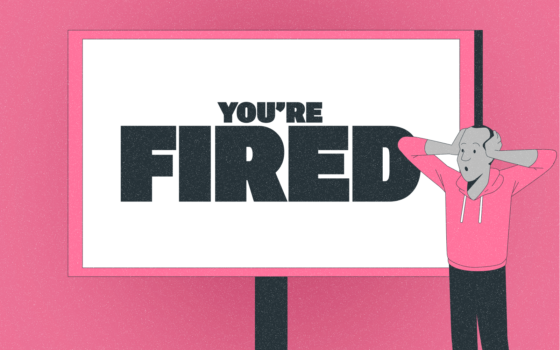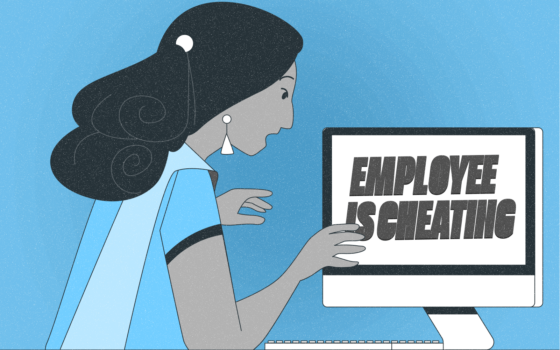Employment Credit Check
Employment credit checks have become an increasingly common practice in the hiring process across various industries. As employers seek to make informed decisions about potential candidates, they often turn to credit reports as a tool to assess an individual's financial responsibility and overall trustworthiness. This comprehensive guide will delve into the intricacies of employment credit checks, exploring their purpose, legality, and impact on both employers and job seekers.
What is an Employment Credit Check?
An employment credit check is a review of a job applicant's credit history conducted by a potential employer as part of the hiring process. This check provides insight into an individual's financial background, including information about credit accounts, payment history, and outstanding debts. Unlike a standard credit check used for lending purposes, an employment credit check is typically less detailed and does not include a credit score.
The primary purpose of an employment credit check is to help employers evaluate a candidate's financial responsibility and identify potential red flags that may impact job performance or pose a risk to the company. This practice is particularly common in industries dealing with financial transactions, sensitive information, or positions of trust.
Components of an Employment Credit Check
When conducting an employment credit check, employers typically receive a modified version of the applicant's credit report. This report may include:
- Personal information (name, address, Social Security number)
- Current and previous employers
- Open credit accounts and their status
- Payment history
- Public records (bankruptcies, tax liens, civil judgments)
- Inquiries made on the credit report
It's important to note that employment credit checks do not provide access to an individual's credit score, as this information is not considered relevant for employment purposes.
Legal Considerations for Employment Credit Checks
The use of credit checks in employment decisions is subject to various legal regulations and restrictions. Employers must navigate a complex landscape of federal and state laws to ensure compliance and protect applicants' rights.
Fair Credit Reporting Act (FCRA)
The Fair Credit Reporting Act is the primary federal law governing the use of credit reports for employment purposes. Under the FCRA, employers must follow specific procedures when conducting credit checks:
- Obtain written consent from the applicant before requesting a credit report
- Provide a clear disclosure that a credit check will be performed
- Notify the applicant if the information in the credit report may result in adverse action
- Provide a copy of the credit report and a summary of the applicant's rights under the FCRA
- Allow the applicant an opportunity to dispute any inaccurate information
Failure to comply with these requirements can result in legal consequences for employers, including potential lawsuits and fines.
State Laws and Restrictions
In addition to federal regulations, many states have enacted laws limiting or prohibiting the use of credit checks in employment decisions. These laws vary widely, with some states imposing outright bans on the practice and others allowing credit checks only for specific positions or industries.
For example, California's Labor Code Section 1024.5 restricts the use of credit reports to certain types of positions, such as managerial roles, law enforcement, and jobs involving access to large amounts of cash or sensitive information. Other states, like Illinois and Maryland, have similar restrictions in place.
Employers operating in multiple states must be aware of the specific laws in each jurisdiction and tailor their hiring practices accordingly.
The Pros and Cons of Employment Credit Checks
The use of credit checks in employment decisions is a contentious issue, with valid arguments on both sides. Understanding the potential benefits and drawbacks can help employers make informed decisions about whether to incorporate credit checks into their hiring process.
Advantages of Employment Credit Checks
- Risk mitigation: Credit checks can help identify potential financial pressures that may increase the risk of theft or fraud, particularly in positions involving financial responsibilities.
- Assessing financial responsibility: A clean credit history may indicate that an applicant is responsible and capable of managing their personal finances, which could translate to good job performance.
- Verifying information: Credit reports can be used to confirm the accuracy of information provided by applicants, such as employment history and personal details.
- Regulatory compliance: In some industries, such as financial services, credit checks may be required by law or regulatory bodies.
Disadvantages of Employment Credit Checks
- Potential discrimination: Critics argue that credit checks may disproportionately impact certain groups, such as minorities or individuals from low-income backgrounds, leading to unintentional discrimination.
- Limited relevance: Credit history may not always be indicative of job performance or trustworthiness, especially for positions unrelated to financial responsibilities.
- Privacy concerns: Some applicants may view credit checks as an invasion of privacy and an unnecessary intrusion into their personal lives.
- Inaccurate information: Credit reports can contain errors or outdated information, potentially leading to unfair assessments of candidates.
- Legal risks: Improper use of credit checks can expose employers to legal liabilities and potential lawsuits.
Best Practices for Conducting Employment Credit Checks
For employers who choose to incorporate credit checks into their hiring process, following best practices is essential to ensure fairness, compliance, and effectiveness.
1. Develop a Clear Policy
Establish a written policy outlining when and how credit checks will be used in the hiring process. This policy should specify which positions require credit checks and the criteria for evaluating credit information. Ensure that the policy is consistently applied to all applicants for the same position.
2. Obtain Proper Consent
Always obtain written consent from applicants before conducting a credit check. Provide a clear disclosure explaining that a credit check will be performed and how the information will be used in the hiring decision.
3. Use a Reputable Credit Reporting Agency
Partner with a reliable credit reporting agency that specializes in employment screening. Ensure that the agency complies with all relevant laws and regulations, including the FCRA.
4. Consider the Context
When reviewing credit reports, consider the context of an applicant's financial history. Factors such as medical debts, student loans, or economic downturns may have contributed to credit issues and may not necessarily reflect on an individual's ability to perform the job.
5. Provide Opportunity for Explanation
Allow applicants the chance to explain any negative information found in their credit report. There may be extenuating circumstances or errors that warrant consideration.
6. Maintain Confidentiality
Treat credit information as confidential and limit access to only those individuals directly involved in the hiring decision. Implement secure storage and disposal procedures for credit reports.
7. Stay Informed About Legal Requirements
Regularly review and update your credit check policies to ensure compliance with changing federal, state, and local laws. Consider consulting with legal counsel to address any questions or concerns.
Alternatives to Employment Credit Checks
Given the potential drawbacks and legal restrictions associated with employment credit checks, some employers are exploring alternative methods to assess candidates' financial responsibility and trustworthiness.
1. Background Checks
Comprehensive background checks can provide valuable information about a candidate's history without delving into their credit report. These checks may include criminal records, education verification, and employment history.
2. Reference Checks
Thorough reference checks can offer insights into a candidate's work ethic, reliability, and overall character. Consider asking specific questions related to financial responsibility if relevant to the position.
3. Skills Assessments
For positions involving financial responsibilities, skills assessments can evaluate a candidate's ability to manage money, budgets, or financial systems without relying on personal credit history.
4. Behavioral Interviews
Structured behavioral interviews can help assess a candidate's decision-making skills, integrity, and ability to handle financial responsibilities through scenario-based questions.
5. Probationary Periods
Implementing probationary periods for new hires allows employers to evaluate an employee's performance and trustworthiness on the job, rather than relying solely on pre-employment screenings.
The Future of Employment Credit Checks
As the debate surrounding employment credit checks continues, the landscape is likely to evolve. Several trends and factors may shape the future of this practice:
- Increased regulation: More states may enact laws restricting or prohibiting the use of credit checks in employment decisions, potentially leading to a decline in their use.
- Focus on privacy: Growing concerns about data privacy may lead to stricter regulations on the collection and use of personal financial information in the hiring process.
- Alternative assessment methods: Employers may increasingly turn to more holistic evaluation methods that consider a broader range of factors beyond credit history.
- Technology advancements: New technologies and data analytics tools may emerge, offering more nuanced ways to assess financial responsibility and job suitability.
- Shifting societal attitudes: Changing perceptions about the relevance of credit history to job performance may influence employer practices and legal frameworks.
Conclusion
Employment credit checks remain a complex and contentious aspect of the hiring process. While they can provide valuable insights for certain positions, their use must be carefully considered in light of legal requirements, potential drawbacks, and alternative assessment methods.
Employers must strike a balance between protecting their organizations' interests and ensuring fair, equitable hiring practices. By staying informed about legal developments, implementing best practices, and considering alternative evaluation methods, employers can navigate the challenges associated with employment credit checks and make informed decisions that benefit both their organizations and job seekers.
Ultimately, the key to effective use of credit checks in employment decisions lies in thoughtful implementation, consistent application, and a willingness to adapt to changing legal and societal landscapes. As the debate continues, employers must remain vigilant and responsive to evolving best practices in this area of human resources management.


